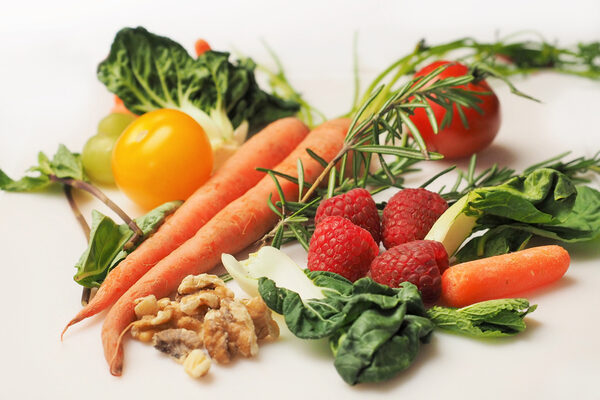Environmental tip January: A tasty treat for a healthy environment: the Planetary Health Diet
Many people are resolving to eat more healthily in the new year. One way to do this is the Planetary Health Diet, which focuses on human health and the environment. The tip of the month shows how this nutritional concept works.
Our diet is a very effective lever when it comes to avoiding CO2, saving pesticides and land consumption in agriculture. The Planetary Health Diet is about doing something good for yourself and at the same time reducing the impact on the environment.
Planetary health means planetary health and this is directly linked to human health. Because if the environment is under pressure from pollutants in the soil and water or from climate change, this also has an impact on human health. Conversely, we can have a positive impact on the environment through our food choices: Consuming organic produce and a plant-based diet helps to reduce the use of antibiotics and pesticides.
What is on the menu in the Planetary Health Diet?
Fruit and vegetables, wholegrain products, pulses and nuts are the main components of a climate-friendly diet. Small amounts of eggs, poultry, fish, seafood and starchy vegetables such as potatoes complete the range.
Dairy products, red meat, sugar and saturated fats should be avoided. The food selection fits perfectly into the diet of people who eat a purely vegetarian diet or a diet with a small proportion of selected meat or fish.
Six tips for a healthy AND climate-friendly diet:
- Veganuary
Use January to test a plant-based diet for a month and try out new recipes and foods. The "Veganuary" platform offers tips and exchanges. After the test month, you may find it easier to eat less meat and animal products for the rest of the year. - Quality
Pay attention to the quality of your food: it should be seasonal, regional and fresh. Short transportation routes not only protect the climate, fruit and vegetables also taste more aromatic and contain more nutrients. - Organic food
Products bearing the organic label are produced without pesticides and artificial fertilizers and support the formation of humus; you are doing something good for yourself and the environment. - Down to the last crumb
Minimize your food waste. Don't buy too much, store food properly and use leftovers creatively or freeze them. The best-before date (BBD) is not an expiry date. Many products can still be enjoyed for longer after the best-before date without any loss of quality. - Avoid highly processed foods
Avoid ready meals, fast food, soft drinks and sweets. These highly processed foods contain few nutrients and lots of salt, sugar and additives. - Minimize packaging waste
Choose unpackaged or less packaged foods. This is because harmful substances can migrate from the packaging into the food and packaging waste is a burden on the environment.
Changing your diet is a good resolution that is easiest to implement step by step. Try out one or two new recipes every week that are in line with the Planetary Health Diet. Exchange ideas with others and cook together. Look forward to fresh, aromatic seasonal fruit and vegetables and buy them unpackaged if possible, for example at the market. Gradually establish new foods, recipes, shopping and cooking habits and do something good for yourself and the environment.
Further information
Contact us
Environmental store
Address
65185 Wiesbaden
Postal address
65029 Wiesbaden
Arrival
Notes on public transport
Public transportation: Luisenplatz stop.
Telephone
- +49 611 313600
- +49 611 313957
Opening hours
- Monday, Tuesday, Friday Saturday: 10 a.m. to 2 p.m.
- Wednesday, Thursday: 1 to 6 p.m.
